Menudo Rojo (Red)
This iconic soup, menudo rojo, combines tender tripe with a bold red chile broth. Known for comfort and flavor, it’s a dish that warms both body and soul.
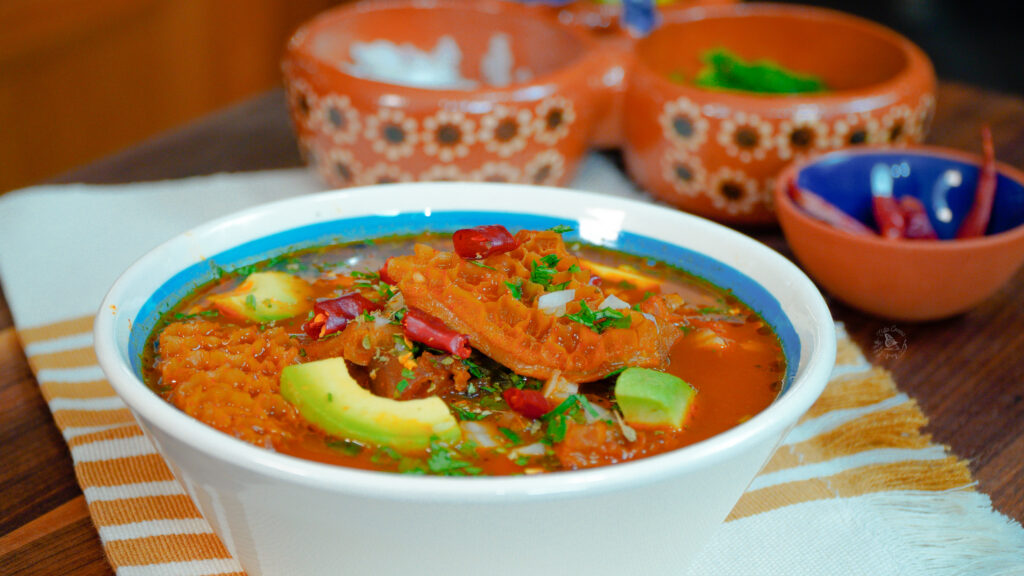
What Is Menudo?
Menudo rojo, or red menudo, gets its name from the vibrant color of the chile broth. It’s a warm and hearty soup made with beef tripe, known for being both comforting and deeply nourishing. For many, it’s more than just a dish—it’s tradition, memory, and even a remedy after long celebrations.
Menudo has its roots in Mexico and is believed to date back to colonial times, when no part of the animal went to waste. Families transformed humble cuts like tripe into nourishing stews, flavored with local chiles and spices
Over time, the dish grew into a weekend tradition, especially in central and northern Mexico, with variations that reflect each region’s unique ingredients and cultural heritage.
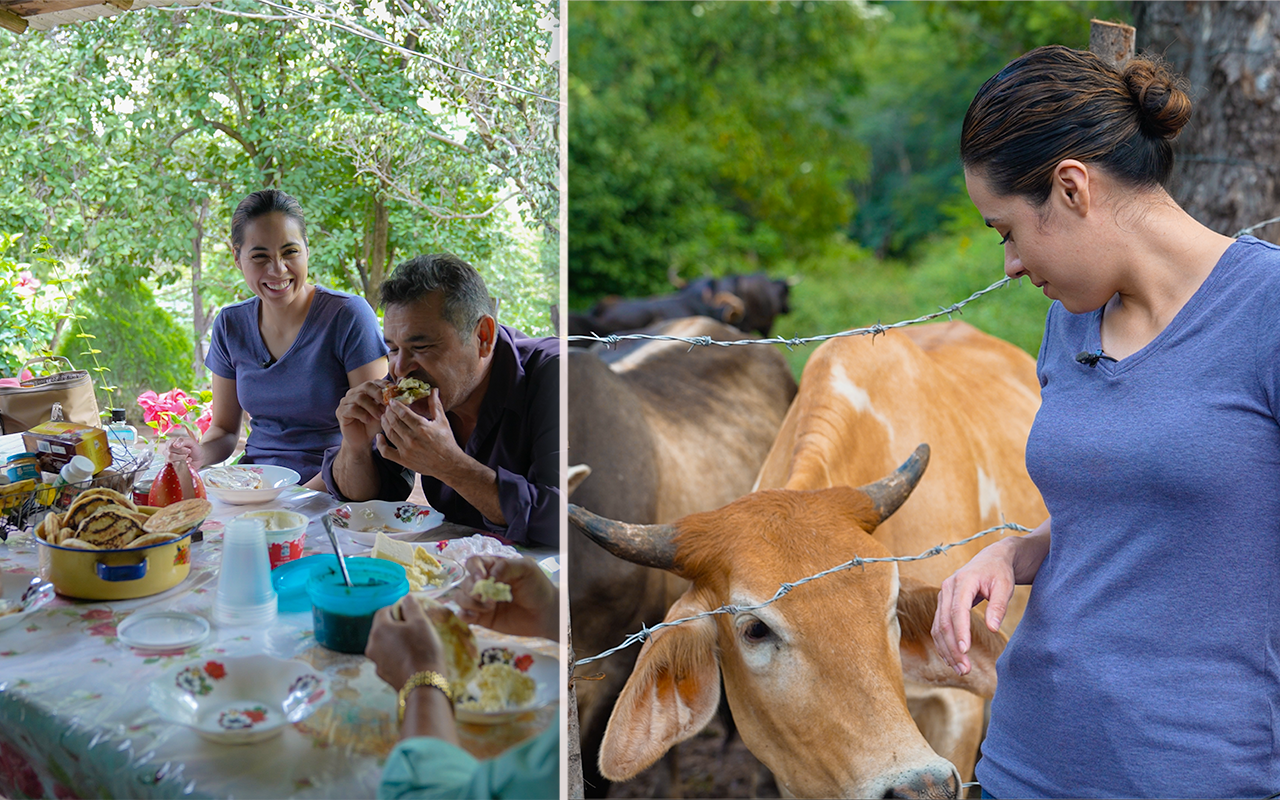
Menudo Across Mexico
During the first years of my marriage, my husband took me to a small restaurant tucked inside a gas station, swearing they had the best menudo. He was right! What made it truly unforgettable was its rich body, slightly gelatinous texture, and deep flavor—without hominy.
I understand menudo can sometimes be made with hominy, but to me, that leans more toward pozole. Either way, we must remember how vast and diverse Mexico is. Recipes shift depending on the region, family traditions, and what ingredients are available.
In my hometown of Michoacán, as well as in Guadalajara, menudo is usually served without hominy. However, in states like Sonora, Sinaloa, and Nuevo León, you’ll often find it with hominy added.
Recipe Video Tutorial
Watch my easy video tutorial for step-by-step visuals on making this Menudo Rojo.
Enjoyed the video? Subscribe and tap the bell for updates on new recipes. Thank you for your support!
Menudo Pairings
Apart from hominy, nothing pairs better with menudo than fresh corn tortillas. Homemade tortillas are a true treat—fresh off the comal, gently steamed in a warmer, then brought to the table, rolled, and savored with the soup.
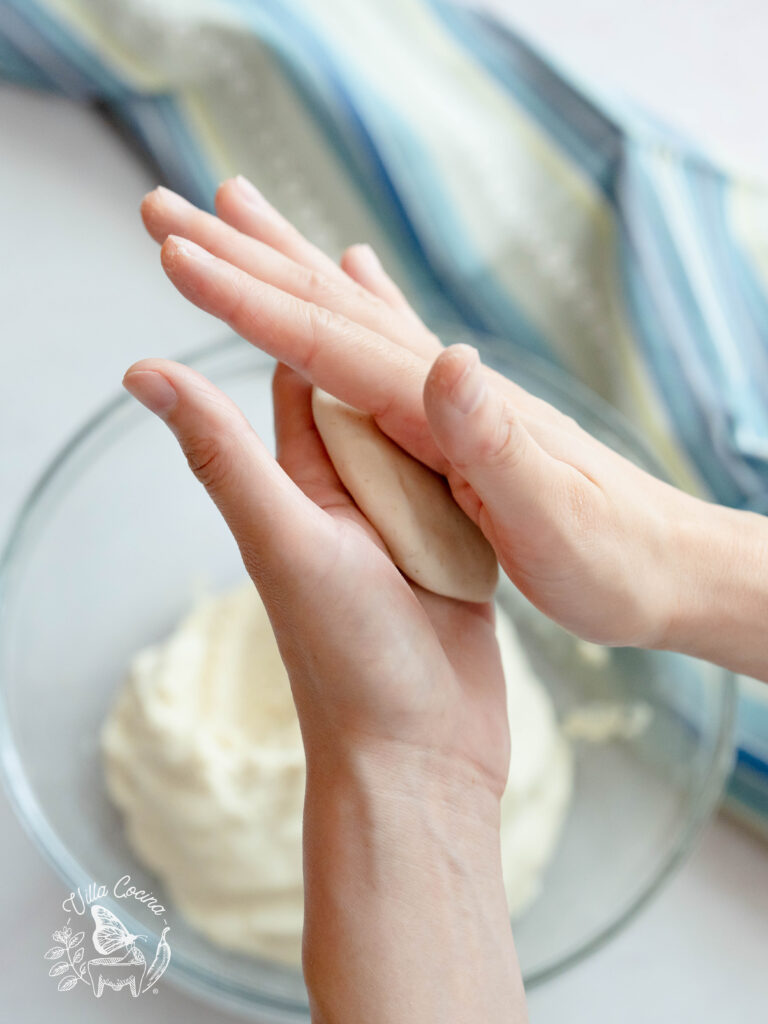
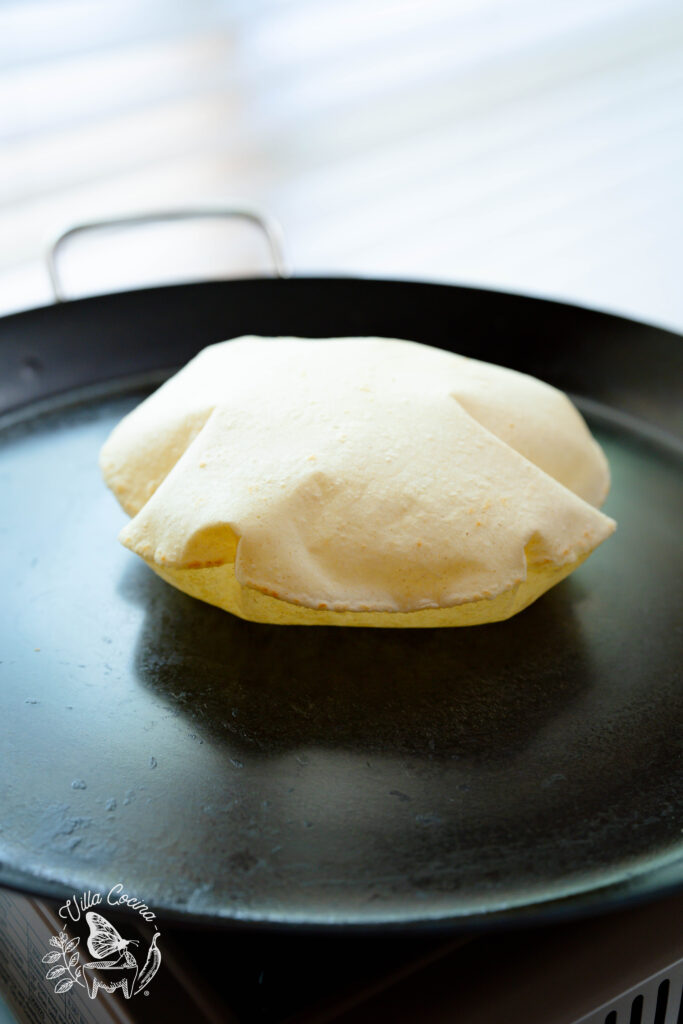
Mexican dried oregano is indispensable in menudo. Unlike common oregano, it has a stronger, earthier flavor and aroma. Whole leaves often come with a few stems—simply pick the leaves, rub gently between your hands, and sprinkle over the soup. The result? A flavor boost that’s truly unforgettable.
Other traditional accompaniments include diced onion, chopped cilantro, and a squeeze of lime juice. For a creamy touch, I love adding avocado slices. In Mexico, avocados can be pricey, so they feel like a little luxury—but they’re absolutely worth it.
In my home, this dish instantly makes my husband happy—if I’m missing an ingredient, he’ll gladly volunteer to fetch it. That’s just how much we love it.
More Soups and Stews:
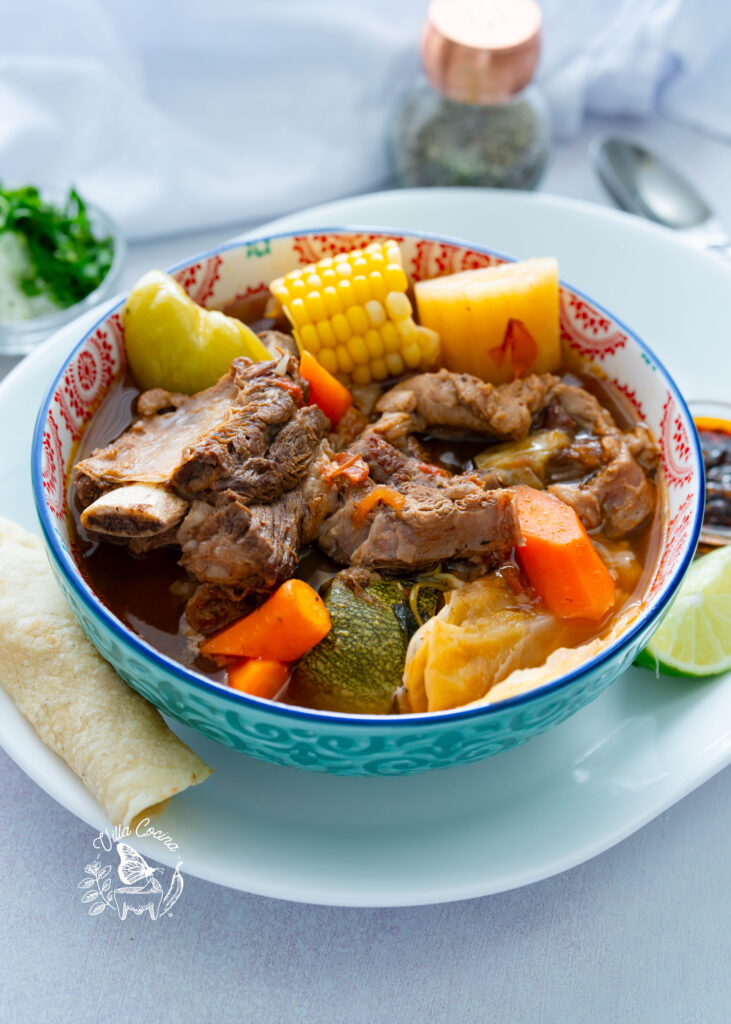
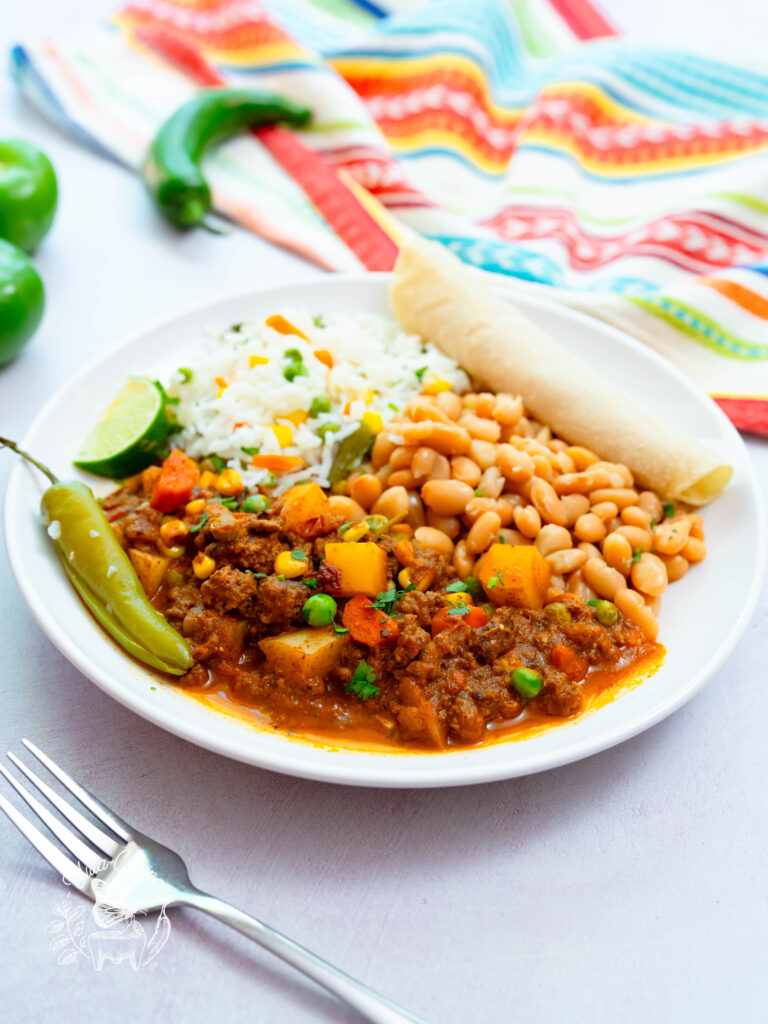
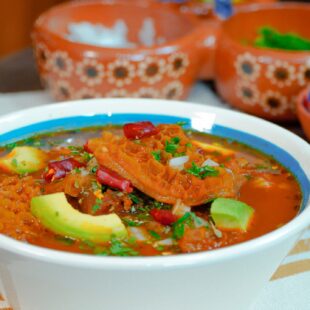
Menudo Rojo (Red)
Ingredients
Clean Tripe and Feet
- 4 lbs beef honeycomb tripe
- 2 lbs cows feet
- 5 juicy limes
Aromatics
- 1/2 large white onion
- 1 head garlic, slice end off
- 3 bay leaves
- 3 sprigs fresh epazote
- 12 cups water
Chile Sauce
- 8 guajillo chiles, seeded, deveined, and stemmed
- 5 puya chiles, seeded, deveined, and stemmed
- 6 garlic cloves, peeled
- 1/2 tsp cumin seeds
- 1 1/2 tsp dried Mexican oregano
Additional
- To taste kosher salt, (2 tbsp + 2 tsp)
Accompaniments
- White onion, diced
- Cilantro, chopped
- Lime juice
- Dried Mexican Oregano
- 10 chiles de arbol, toasted
- Avocado, slices
Instructions
Clean Tripe and Feet
- Cut the honeycomb tripe into medium-sized squares and transfer it to a large container, preferably one with a strainer insert.
- Cover the tripe with water, rubbing gently to clean, then drain and rinse. Repeat this process twice. Refill the container with water, stir in the juice of five limes, and leave the lime skins in the water.
- Add the cow’s feet and let them sit in the lime water with the tripe for 30 minutes. Then remove the lime skins, rinse everything two more times—or until the water runs clear—and drain all the water.
Start the Menudo
- Place the cow’s feet, onion, garlic, bay leaves, epazote, and water in a large pot. Bring to a boil over medium-high heat, then reduce to medium-low. Cover, skim off any foam or scum, and let it simmer gently for 30 minutes.
- After 30 minutes, add the cleaned honeycomb tripe to the pot. Bring the mixture back to a boil over medium-high heat, then reduce to medium-low and continue simmering for 2 hours.
Toast Chiles
- Clean the chiles de árbol with a damp paper towel and let them air dry. Toast them on a comal over low heat, turning continuously until fragrant, then set aside to use as a topping.
- Toast the guajillo and puya chiles in the same way, then place them in a heat proof container, rinse, drain, and cut into pieces that fit comfortably inside. Cover with hot water and rehydrate for 5–10 minutes, or until soft and pliable.
Make the Chile Sauce
- In a blender, combine the hydrated guajillo and puya chiles, 3 cups of the chile soaking liquid, garlic, cumin, and oregano. Blend until smooth. Strain if necessary.
Finish Menudo
- After 2 hours of simmering the tripe, remove the onion, garlic, and epazote from the broth. Stir in the sauce, then pour an additional cup of chile soaking liquid or water into the blender to get any remaining sauce and add it to the pot. Optionally, skim off extra fat from the surface.
- Bring the soup back to a boil over medium-high heat, then reduce to medium-low. Cover and simmer gently for another 30 minutes. At this point, the tripe and cow’s feet should be tender.
- Add salt to taste. Remove the cow’s feet and any loose bones from the pot. Separate the tissue, tendons, and skin from the bones, cut into bite-sized pieces, and return to the pot. Discard the bones.
Serve
- After stirring the pot to combine everything, serve the menudo in bowls. Top with chopped cilantro, diced onion, toasted chiles de arbol (broken into small pieces), oregano, lime juice, and avocado. Enjoy with corn tortillas.
Equipment
Notes
Did you make this recipe?
Show some love! Tag @villacocinaofficial on Instagram and drop a 5-star review. Your support means everything—thanks!
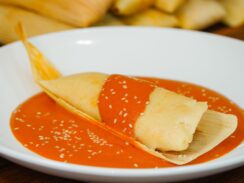
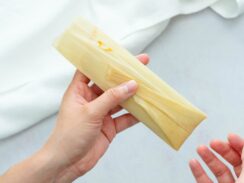
Garth Clark
Wonderful combination
Villa Cocina
It sure is! hope you try it soon.